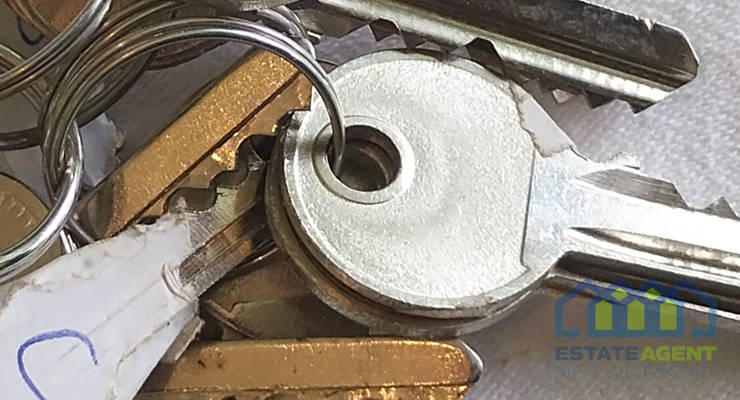Damp Issues to Look For When Selling/Buying a Property
When you are in the process of selling your home and buying a new one, the list of things to check out and consider can seem endless. This can mean that some of the smaller issues that seem less important, less urgent can slip to the bottom of the list or be forgotten altogether. If there’s one seemingly simple problem to deal with, it‘s damp – but unfortunately it is a bigger than most people think it is. Here’s what to look for when you sell or buy a property with regards to damp.
Common types of damp
There are a number of different types of damp but there are three most commonly seen in homes. Each has a different cause, although there can be some overlap in the signs you might spot.
Rising Damp
Rising damp is where the base of the walls absorb water from the ground and there is nothing to stop it rising up the pores of the masonry by capillary action. Learning how to install damp proof membrane to walls will most certainly help. In most modern homes and many older ones, there is a damp proof course that stops this natural absorption. But if this fails or is missing, then rising damp can be a problem. Signs of it are most commonly seen in lower areas such as damp lower wall surfaces, crumbling plaster, distorted skirting boards and springy floors..
Rain Penetration
Penetrating damp is caused by building defects that allow rain the soak through the walls and damage the internal surfaces. The most common causes of this are leaking roofs, leaking rainwater goods, defective external rendering, defective brick mortar joints (pointing) and rain entering chimney stacks.
Condensation
By far the most common cause of damp in UK properties. Condensation occurs when warm moist air comes into contact with a colder wall, window or furniture and the moisture is released. High humidity (condensation) also often brings about black spot mould fungus which not only damages walls, furniture or your personal possessions, but can also damage your health.
Damp issues as a seller
Selling your house is exciting so it is easy to get carried away and forget that small patch of damp in the corner of the spare bedroom. It just needs a little paint, right? But the truth is,if there is damp there, something is causing it and that’s what you need to look at before you put your property on the market and a building surveyor finds it.
For example, if the damp is high on the wall near the ceiling, then it is likely that the roof is leaking. Maybe a tile or slate is missing, the chimney pots need cowls fitted. There could be a crack in the brickwork or defective guttering could be to blame. If it is in a downstairs room low to the ground, then the damp proof course may have broken down and isn’t preventing damp from rising from the ground. Maybe the house is of an age where a damp course wasn’t installed to high standard and it has failed.
One of the main steps in preparing your home for sale is to check out all those little corners and odd spots for signs of damp. It can also be worth instructing a damp proof expert, such as Tapco HomeDry, to come in and thoroughly check the property for signs of damp. This can include checking walls for moisture, using and calibrated damp meter. If you use a reputable company who is a member of the Property Care Association (PCA), you should receive a comprehensive investigation and report which you can show a prospective purchaser of building surveyor. If you chose to ignore a damp problem and a building surveyor or valuer comes finds it when inspecting the property for the purchaser, there’s a good chance they will pull out and the whole deal will fall through.
Damp issues as a buyer
When you are the one buying, knowing if the property has damp or not is very important. While there’s nothing to say that damp has to stop a sale, you do want to know about it before you buy so you can arrange for work to be done before you move in and you don’t have to pay for it, or at least renegotiate the price
Spotting signs of damp with an untrained eye isn’t always easy but there are some clear things that you should look out for. These include:
- Mould on painted walls or peeling wallpaper
- Crumbling or damp wall plaster
- Walls that feel damp when you touch them
- Beads of water on windows from condensation
- Wood that looks soft or crumbling
- Floorboards that feel springy rather than creaking
- Musty smells
Other big signs of a problem include black spots on the wall – these are black mould growths and are a sign the room has too much humidity. Signs of water damage such as tide marks are another key indicator of a problem that is often damp related.
If you do spot signs of damp, it is advisable that you request a damp survey before continuing with the house buying process. That way you can find out the cause and full extent of the problem and discuss with the seller about remedying it before buying the house. This could be your last opportunity to agree on a reduction in the price of the house, so you can choose a damp expert yourself.
Damp issues as a landlord
Many of the considerations above are the same if you are a landlord. You should also consider that you may have an obligation to deal with damp problems if your tenant reports them to you or your managing agent. There are some exceptions, such as condensation, that are being caused by the tenant’s actions but in most cases, it will be the landlord’s responsibility to handle the problem and remove the damp and associated issues.
Handle the problem
Signs of damp don’t need to prevent a potential house sale. By working with a damp expert you can find the cause of the problem and get advice on what is needed to deal with it. It is always a good idea to decide who is doing what about the damp problem before you exchange contracts, but there is no reason that damp should to stop things – but make sure you deal with the problem first!









